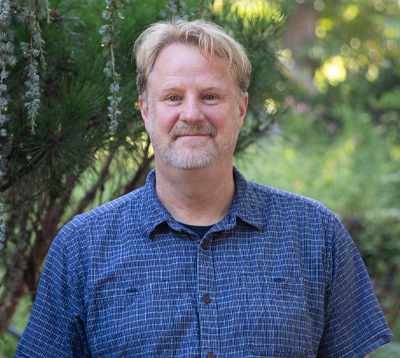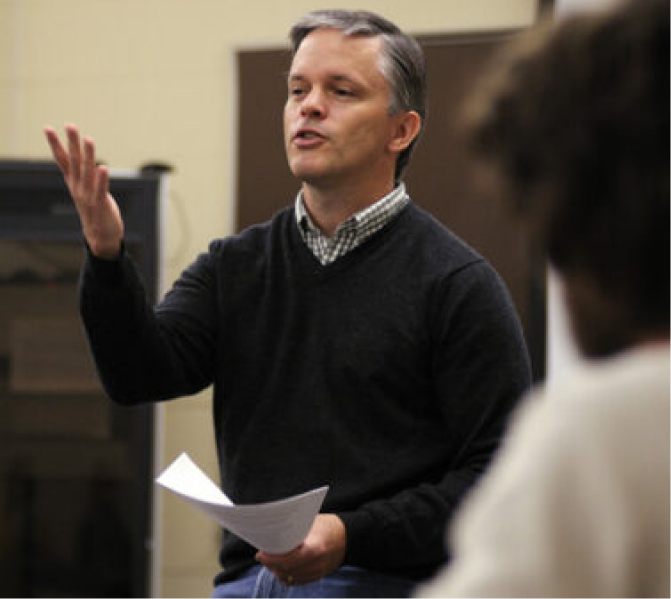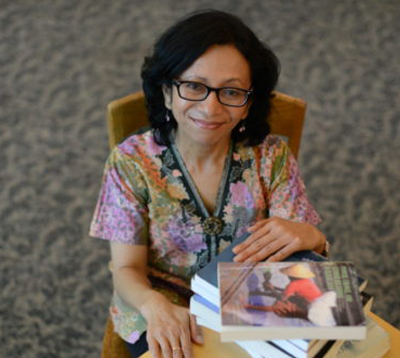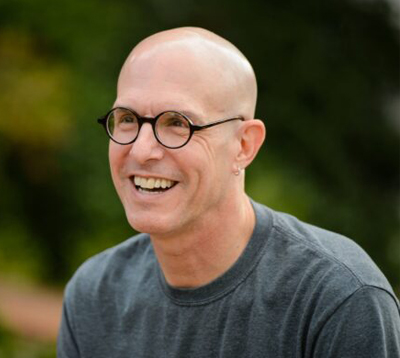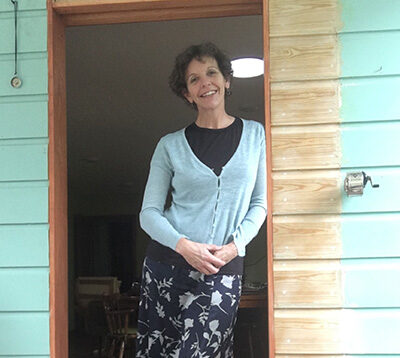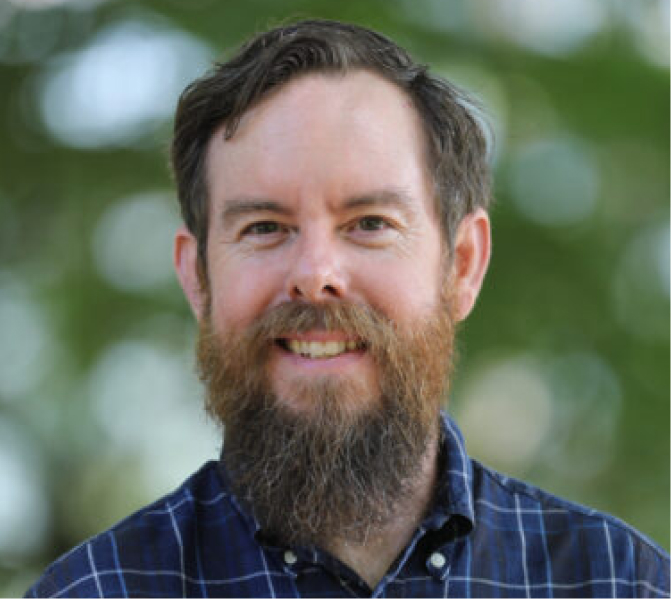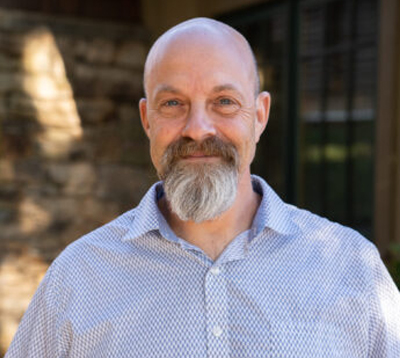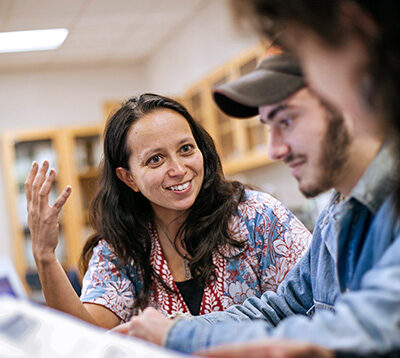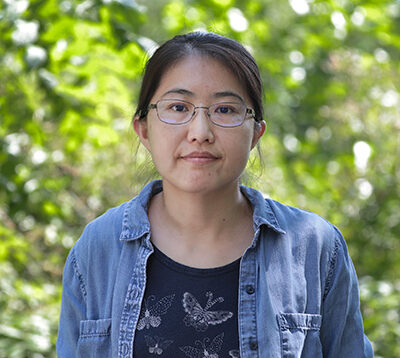Pursue a Master of Science in Applied Climate Studies
Design your career to make an impact on climate change.
- Learn over 4 semesters of online courses, applied experiences and residencies
- Conduct team-based climate research for organizational partners in various sectors
- Join us for three 12-day on-campus residencies
- Engage with and explore climate solutions on our 1,000+ acre working landscape
Chat with a program associate
Let's see if we're a good fit
"*" indicates required fields
“Approach climate problems with an interdisciplinary perspective and develop holistic and applied solutions — instead of relying solely on technological fixes.”
Dr. Joshua Arnold, Chair of the Environmental Studies department
“Warren Wilson College’s emphasis on environmental stewardship and global citizenship deepened my understanding of the connection between human rights and the natural environment, guiding me to pursue solutions at the intersection of these critical areas.”
Ruby Chorbajian ’03, Head of Development at the Climate Group in London, UK
A degree that empowers you to take action
At Warren Wilson College, the Master of Science in Applied Climate Studies is designed to give you the skills you need to make a meaningful impact on climate change on your terms. Whether that’s through policy, risk mitigation, or a leadership role at a climate organization, our program will position you to take confident action.
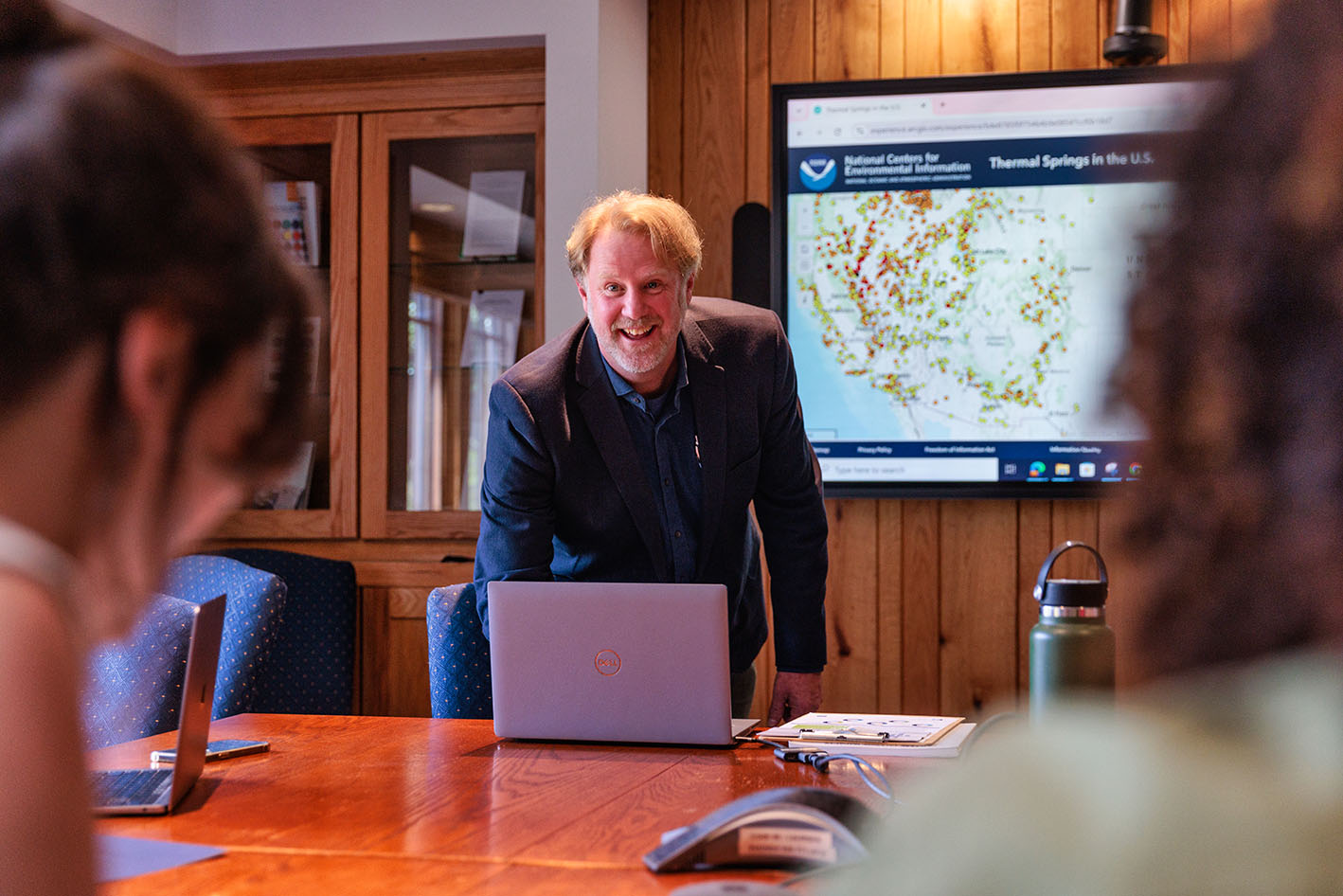
Develop practical skills that give you career flexibility
Our program is designed to give you practical skills and real-world experience. Improve your skills in story-telling, data analysis and communication, stakeholder engagement, and project management that can be applied in a wide range of workplaces and community settings aiming to address climate change.

Expand your career opportunities
The world needs committed climate professionals now more than ever. Our program gives you the flexibility to lead change via a variety of career pathways, including:
- Resilience Officer
- Energy Manager
- Climate Data Analyst
- Sustainability Coordinator
- Project Coordinator, Climate
- Climate Program Director
- Associate, Climate Programs
- Climate Risk Team Member
- Climate Communications Specialist
- And Many Other Emerging Opportunities

This is more than a program. It’s a community.
Meet some of the team
Why Warren Wilson College?
Warren Wilson College sits on the edge of Asheville, North Carolina, affectionately known as Climate City. Surrounded by 1.6 million acres of national forests, Asheville is home to some of the oldest rivers and most biodiverse lands in the world, and our campus is responsibly co-existing in this ecology.
Warren Wilson boasts a decades-long legacy of leadership in climate change action, stewardship of the land, and strong environmental programs. We are a proud charter signatory of the American College and University Presidents Climate Commitment, have divested 100% from fossil fuel companies in our endowments, have a mobile microgrid and electric tractors powered by solar PV, and have been honored by Sierra Magazine, the National Wildlife Federation, and the Princeton Review for our sustainability efforts.
But the quality of education we provide hinges on more than our accolades. The inclusive, justice-minded community we’ve built makes learning accessible and meaningful. Our students feel like they belong, not only in this beautiful place but in our dynamic community.
Learn from climate professionals, experts and activists
Each member of our faculty has a profound connection to their field of study. From Dr. David Abernathy’s applied climate work in Geographic Information Systems (GIS) and data analysis at the intersection of the social and natural sciences to Dr. Siti Kusujiarti’s deep commitment to exploring the intersection of gender justice and climate justice, experiences drive the pursuit of both teaching and learning. At Warren Wilson, we challenge students to bring their whole selves to their studies. This degree is no exception.
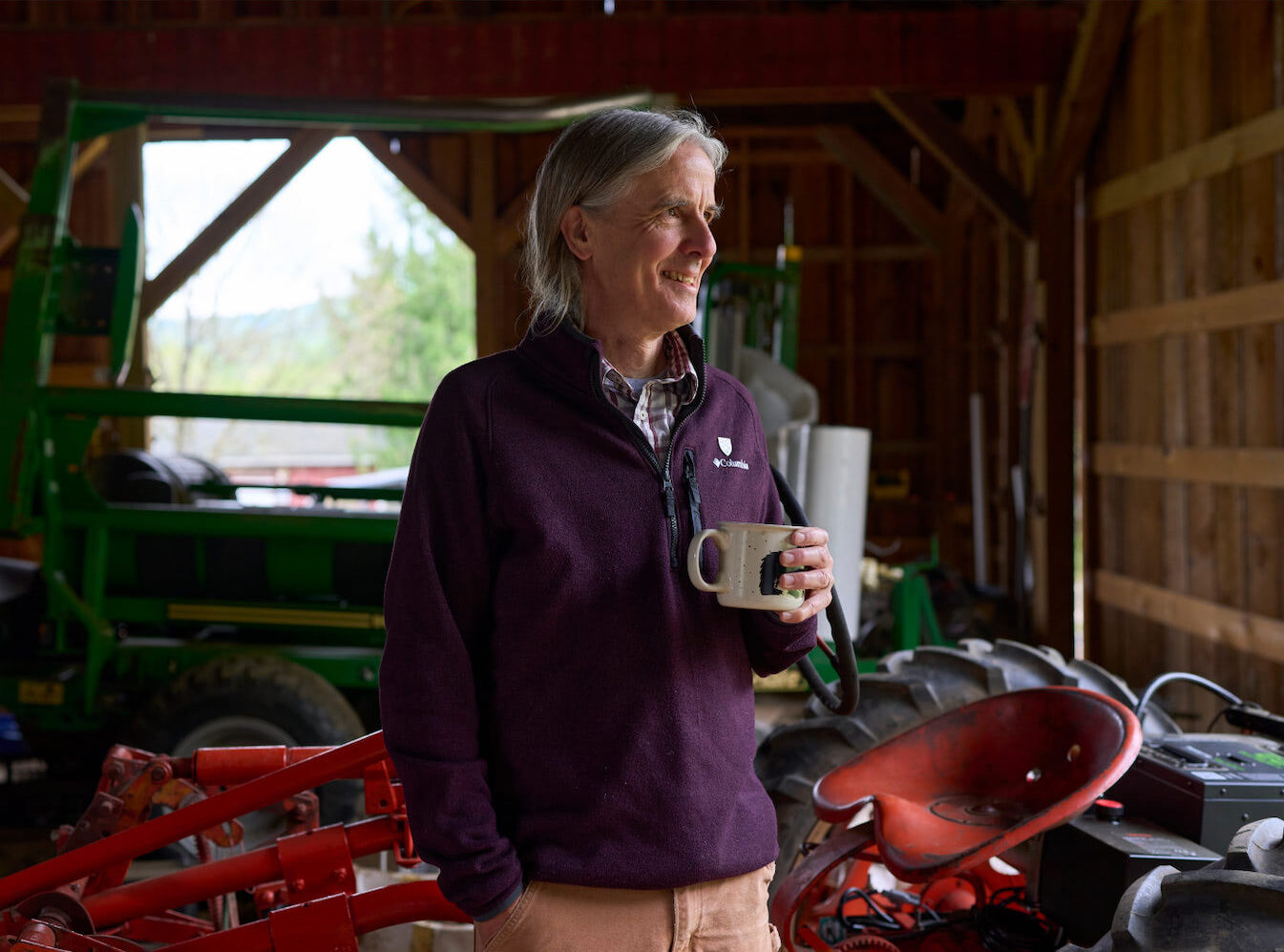
Position yourself as a leader
Through a number of hands-on projects, you’ll develop career-ready skills. Become a leader capable of planning, implementing, and managing effective, just, and equitable climate change mitigation and adaptation strategies.
- Apply an enhanced understanding of climate science to address causes and inform strategies
- Develop skills and understanding related to climate data, society, policy, communication, governance and decision making
- Gain practical experience in leadership, management, and data science tools to use in private, public and non-profit sectors
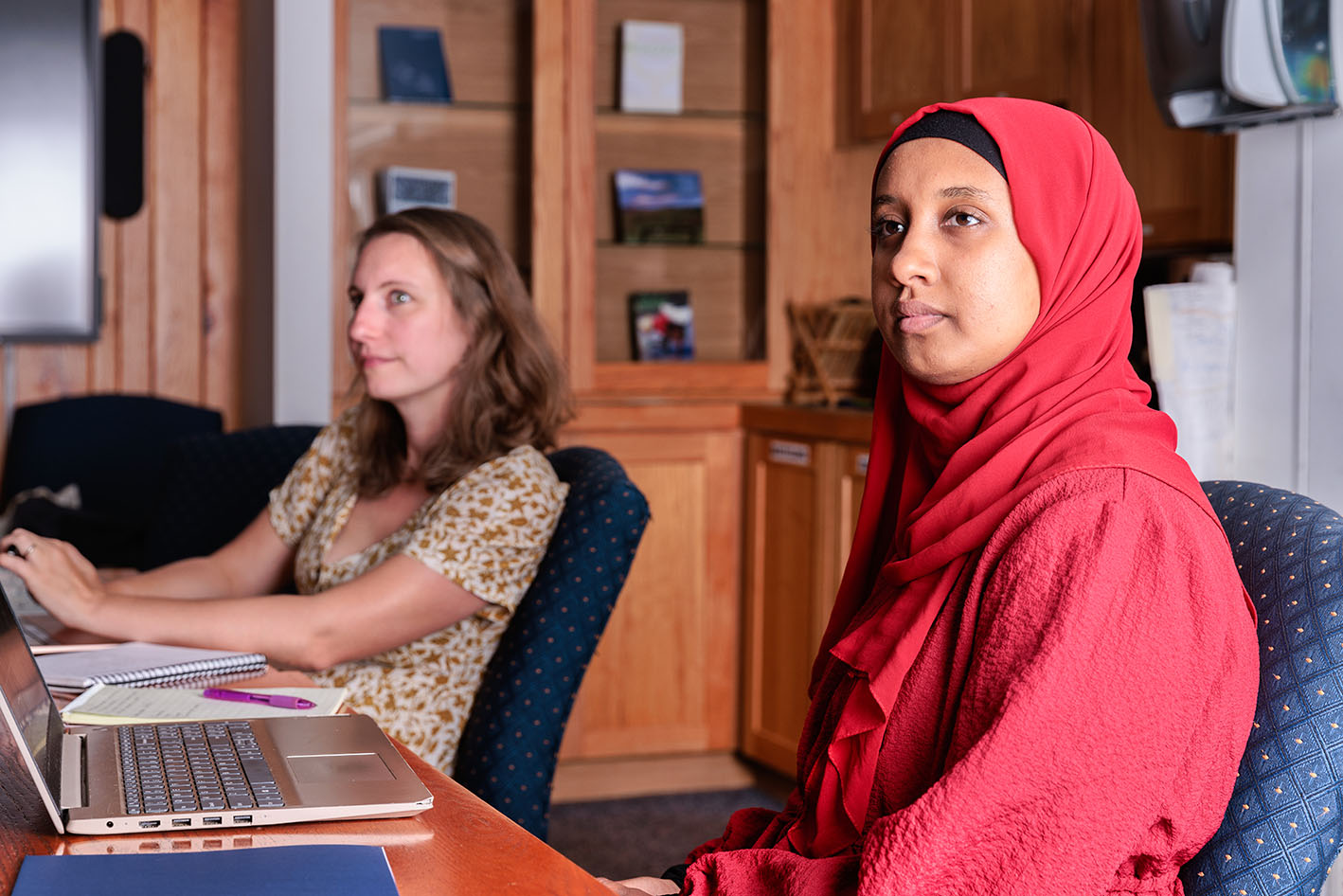
The Center for Working Lands
Our 1000-acre campus of farm, forest, garden, and green spaces offers you the chance to explore and experiment with cutting-edge land management practices that can both enhance decarbonization efforts and address climate resilience. Students in the Applied Climate Studies (MACS) program will have multiple opportunities to engage with faculty, staff, and other students on experiments, demonstrations, and exploration of practices on our working lands–and then bring these ideas and new understandings into the world to more effectively address climate change.
Learn More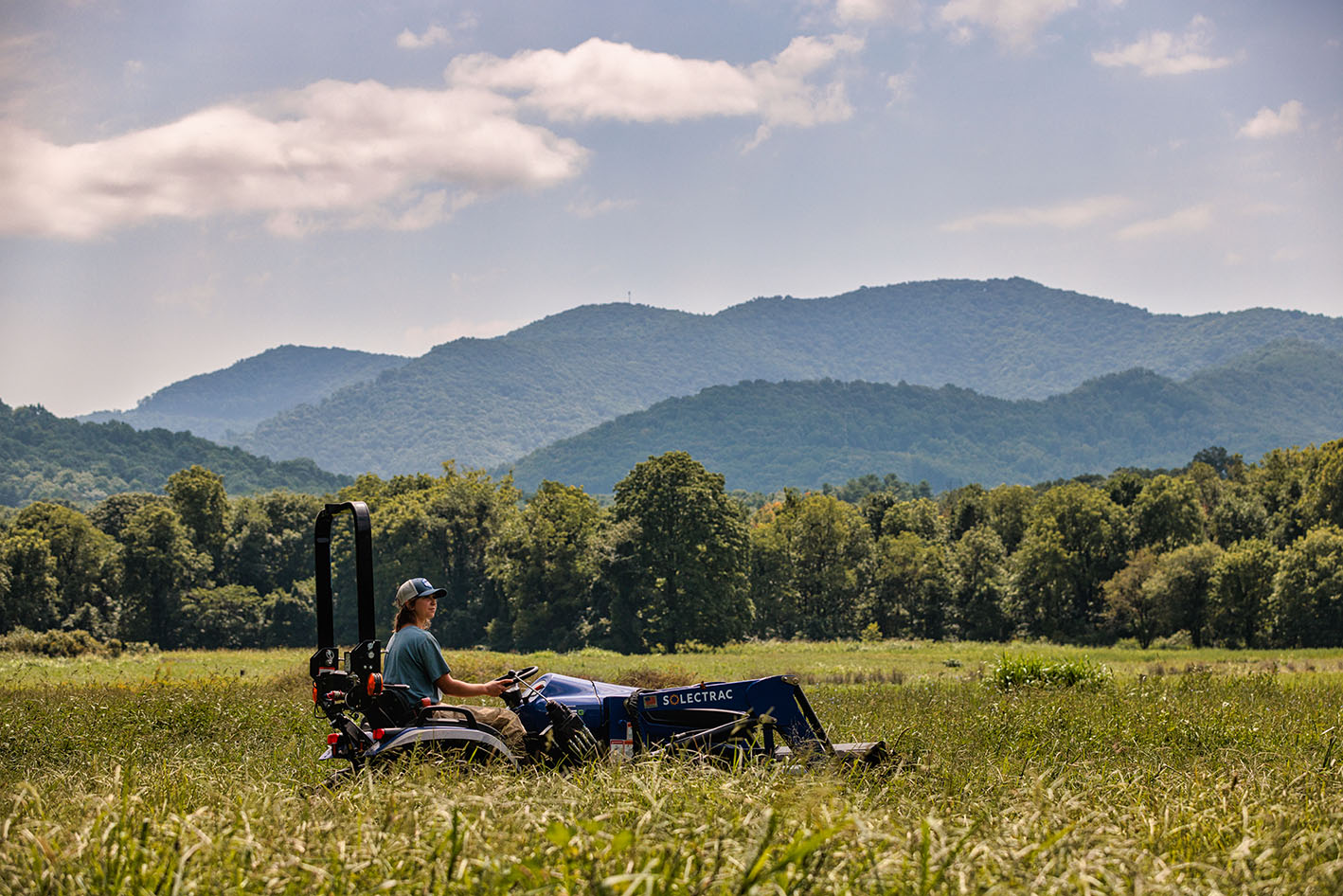
The difference you make starts here
As we build our premiere cohort, we are committed to enrolling students who will feel at-home and passionate about the program. To get started, one of our program associates will chat with you personally about your goals and our program, so you can make a confident decision about beginning your Master of Science in Applied Climate Studies with our 12-day Summer Residency in 2025.
We can’t wait to meet you.
Talk with a program associate
Let’s see if we’re a good fit
"*" indicates required fields
